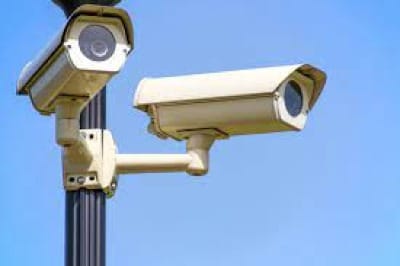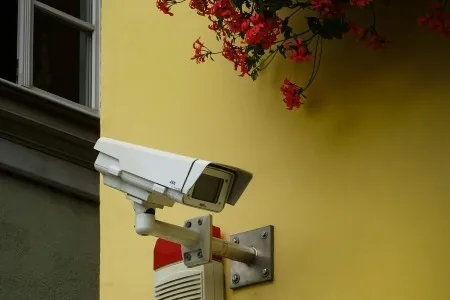From deterring potential criminals to providing crucial evidence in the aftermath of an incident, security cameras play a pivotal role in safeguarding our homes, businesses, and public spaces.
A Brief History of Security Cameras
The concept of surveillance has been around for centuries, but the technology behind modern security cameras has evolved significantly over the last few decades. The first closed-circuit television (CCTV) systems were developed in the 1940s and were primarily used for military purposes. However, as technology advanced, the use of CCTV expanded to include commercial and residential applications. Today, security cameras are more sophisticated, affordable, and accessible than ever before, making them a staple in the security industry.

Types of Security Cameras
There are several types of security cameras available on the market, each designed to meet specific security needs. Some of the most common types include:
- Dome Cameras: These cameras are often used in retail stores and other commercial spaces. Their dome-shaped design makes it difficult for onlookers to determine the direction in which the camera is pointing, which helps deter criminal activity.
- Bullet Cameras: These are long, cylindrical cameras typically used outdoors. They are known for their ability to capture high-quality images over long distances, making them ideal for monitoring parking lots, driveways, and other large areas.
- PTZ Cameras: Pan-Tilt-Zoom (PTZ) cameras allow users to remotely control the camera's movement and zoom in on specific areas. These cameras are often used in larger spaces such as warehouses and stadiums, where wide-angle coverage and detailed monitoring are required.
- Hidden Cameras: Also known as spy cameras, these devices are designed to blend into their surroundings, making them virtually undetectable. They are commonly used in situations where discreet monitoring is necessary.
- Wireless Cameras: As the name suggests, wireless cameras do not require physical cables to transmit video signals. They are easy to install and can be placed virtually anywhere, making them a popular choice for both indoor and outdoor surveillance.
Benefits of Security Cameras
The benefits of installing security cameras are numerous and extend beyond just deterring crime. Here are some key advantages:
- Crime Deterrence: The mere presence of a security camera can discourage criminals from targeting a property. Knowing that their actions are being recorded can make potential offenders think twice before committing a crime.
- Evidence Collection: In the event of a crime, security cameras provide invaluable evidence that can be used in investigations and court proceedings. High-definition footage can help identify suspects, capture details of the crime, and provide a clear timeline of events.
- Remote Monitoring: Many modern security cameras come with remote monitoring capabilities, allowing property owners to view live footage from their cameras via smartphones, tablets, or computers. This feature is particularly useful for those who travel frequently or want to keep an eye on their property while away.
- Increased Employee Productivity: In commercial settings, security cameras can help monitor employee activities and ensure that company policies are being followed. This can lead to increased productivity and a safer work environment.
- Insurance Benefits: Installing security cameras can lead to lower insurance premiums, as they reduce the risk of theft and damage. Some insurance companies offer discounts to property owners who invest in comprehensive security systems.
Considerations When Choosing Security Cameras
When selecting a security camera system, it's essential to consider several factors to ensure you choose the right system for your needs:
- Resolution: The higher the resolution, the clearer the footage. High-definition cameras are ideal for capturing detailed images, especially in areas where facial recognition or license plate identification is necessary.
- Storage: Consider the amount of footage you need to store and how long you want to keep it. Some cameras offer cloud storage, while others rely on local storage options like SD cards or digital video recorders (DVRs).
- Night Vision: If you need to monitor areas in low-light conditions, choose cameras with infrared or night vision capabilities. These cameras can capture clear footage even in complete darkness.
- Weather Resistance: For outdoor cameras, it's crucial to choose models that are weather-resistant and can withstand harsh environmental conditions.
- Budget: Security cameras come in a wide range of prices, so it's important to set a budget and choose a system that offers the best value for your money.
